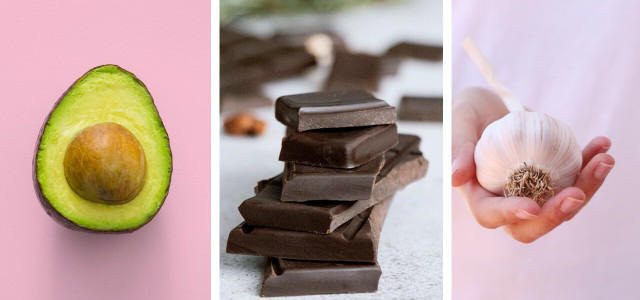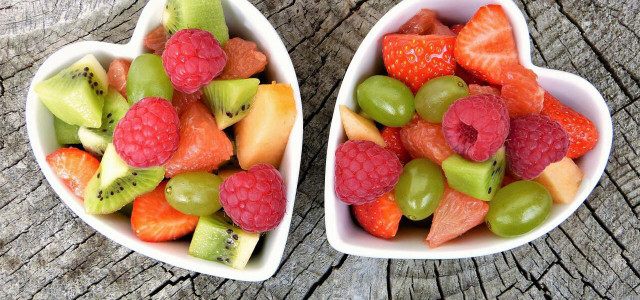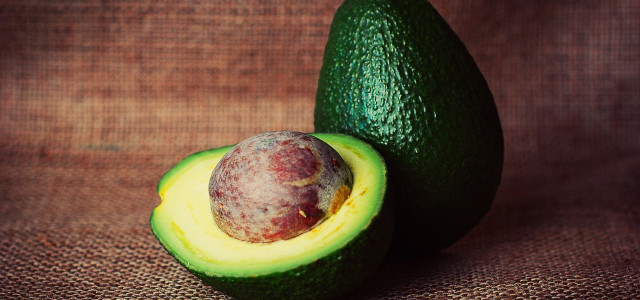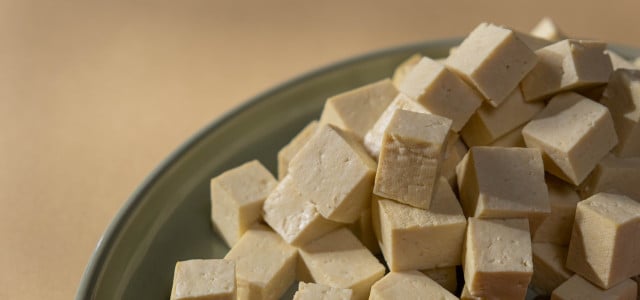Foods that reduce cortisol — also known as the stress hormone — are foods that promote wellbeing within the body. Find out what they are and how they might help you manage your stress.
Foods that reduce cortisol are also foods that reduce stress. This is because cortisol is the main hormone that drives the stress response within the body. This hormone is secreted from the adrenal glands — which are small endocrine glands that sit above each kidney — once stress is perceived in the brain. By eating foods that reduce cortisol secretion we can reduce the stress response and feel better.
Cortisol is not simply a stress hormone. It also has other functions in the body that include regulating metabolism, the inflammatory response, and immune function. Cortisol is important. It can influence nearly every organ in the body and is involved in a lot of the chemical reactions that happen inside us. That’s why balance is essential and why too much cortisol can impact so many parts of the body.
Food provides the molecules we need for the body to function and for all of its chemical reactions to take place. The stress response — like all body functions — needs these molecules to happen and uses them up quickly. Your body is constantly taking in new molecules from food and replacing old ones. Molecules interact with each other — which is why eating foods that reduce cortisol will promote a healthy balance of molecules in your body, mind and being. To understand how, let’s take a quick look at the stress response.
The Stress Response and Cortisol

Physiological balance in the body is called homeostasis — whereby all body systems are working in harmony with each other. The body functions at its best and heals while in homeostasis. The stress response — better known as the fight or flight response — is a whole-body reaction that throws the whole person out of homeostasis. It is driven by nerves, cortisol and other hormones.
The stress response affects every cell in the body. Although cortisol and stress have a bad reputation, this response has actually ensured our survival as a species and still helps to keep us safe from dangers and threats today.
The stress response: Two body systems, the nervous and endocrine system, kick in and override normal body functions (and rational thought) once a threat is perceived. Stress hormones — cortisol, epinephrine, and norepinephrine — are released from the adrenal glands. This causes the following (and other changes) as the body is prepared to fight or run for survival:
- sugar is released into the blood for energy
- the heart and lungs speed up to bring in more oxygen
- the muscles tense
- blood pressure increases
- immune and digestive systems slow
This response was designed to be a short-lived reaction to a physical threat — like a predator. A division of the nervous system, called the parasympathetic nervous system, facilitates the recovery of the body once the threat is gone and we return to a state of homeostasis and balance — in the ideal world. In reality, many things we perceive as stressful or threatening do not go away; like work stressors, relationship problems or financial strains.
Did you know that all this can also lead to eating as a comfort mechanism for stress? Learn more about the signs of emotional eating, which happens when you eat out of sadness, anger or stress rather than hunger, and what to do about it.
Chronic stress equals chronic levels of high cortisol in the body. This means you are walking around all day — with high levels of blood sugar, high blood pressure, tense muscles and impaired digestion and immunity, prepared to fight or fly, but doing neither. This is why chronic stress is now linked to the majority of our non-infectious diseases — particularly metabolic diseases like diabetes and cardiovascular disorders. Stress is also associated with depression, inflammation anxiety, cognitive impairment and other debilitating physical and mental conditions. All of these mechanisms are driven by cortisol.
All of this requires a lot of energy and a lot of nutrients from food. The response uses up our reserves of nutrients very quickly — which is why eating foods that reduce cortisol and stress will help you reach a state of recovery, homeostasis and relaxation.
Foods That Reduce Cortisol
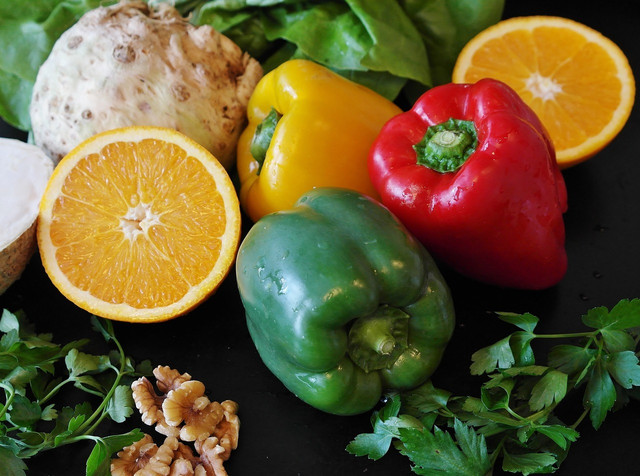


Foods that reduce cortisol are foods that contain a rich matrix of nutrients that promote homeostasis and health and help combat the stress response. Because high levels of cortisol and stress use up a lot of energy — we need to replace this energy to avoid becoming depleted. Carbs, fats and protein, the macronutrients, provide the calories that fuel our energy levels. Eating these nutrients from healthy whole foods as part of balanced meals that lower cortisol will help alleviate stress.
Micronutrients, better known as vitamins and minerals, do not provide energy, but are essential for all chemical reactions to take place. We only need small amounts of these molecules from food, but the stress response uses some of them up very quickly. Certain micronutrients — like magnesium and B vitamins — are depleted very quickly by the effects of cortisol.
Because livestock production is a leading driver of the environmental crisis and contributes significantly to deforestation, water consumption, soil destruction, water contamination and greenhouse gas emissions — all of the foods that reduce cortisol on our list come from plant-based sources. As always, we recommend you buy from producers that are committed to sustainable farming practices. If you are wondering if the vegan diet is for you — check out our article for all you need to know.
Foods That Reduce Cortisol: According to the Experts
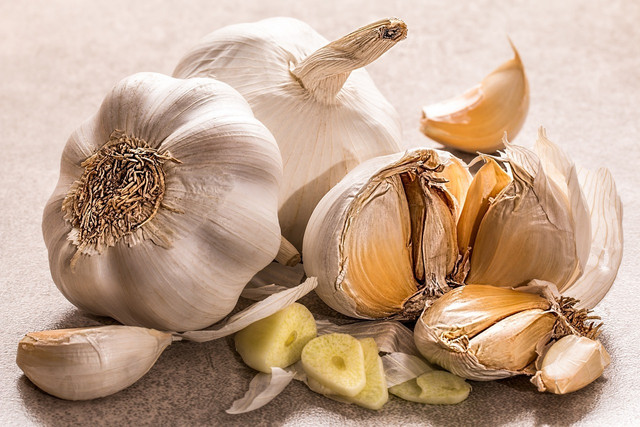


It is widely accepted that a healthy diet can play an important role in the management of our whole body responses to stress and cortisol. It has been shown that in stressful situations, our appetite for sweet and fatty meals rises. These foods drive the stress response instead of reducing it.
Nutrition plays an integral role in the prevention of stress and stress-related diseases. So, our article will discuss foods that reduce cortisol directly — and foods that help to combat the effects of chronic cortisol and stress — like diabetes, cardiovascular disease and others.
Research is not abundant or definitive in the area of foods that reduce cortisol directly. Experts do agree, however, that eating a healthy balanced diet and engaging in exercise — among other practices we will discuss later — is key to effective stress management. A small amount of studies have been carried out to investigate foods that reduce cortisol directly.
According to the American Institute of Stress, the following foods have been scientifically shown to reduce cortisol in clinical trial and studies:
- Dark chocolate — check out some delicious vegan chocolate brands and find out more about vegan dark chocolate for delicious ways to reduce your cortisol.
- Bananas — find out how bananas benefit your skin as well as your cortisol levels or check out our article on banana peel recipe ideas and try something new for lunch.
- Garlic — Harvest some wild garlic and make wild garlic pizza or learn how to preserve garlic for a boost of this food that reduces cortisol.
Cholesterol-free Foods Reduce Cortisol
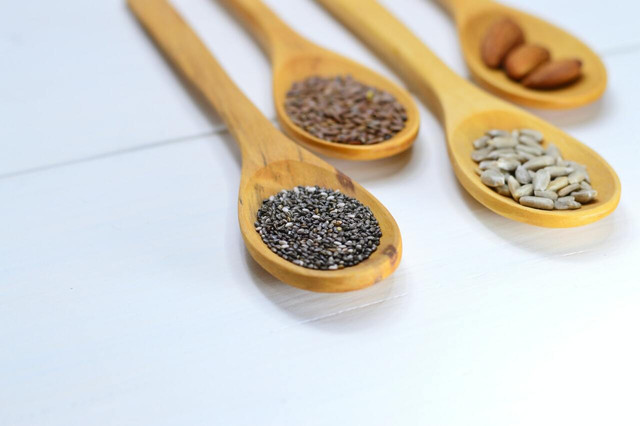


Cortisol is made from cholesterol. The body can make cholesterol itself, but some experts hypothesize that eating high levels of cholesterol-rich foods will promote higher levels of cortisol being secreted and vice versa. Researchers investigating this theory in men with cardiovascular disease did find a link between the two — but not enough evidence to make conclusive recommendations.
Although more studies are required to show whether high cholesterol foods promote high cortisol levels, eating only from the vegan food pyramid will ensure you avoid eating unnecessary cholesterol as only animal products contain it. Plants contain similar molecules called stanols and sterols (phytosterols). These molecules actually help to reduce levels of ‘bad cholesterol’ in the body and are found in large amounts in:
- vegetable oils — like olive oil
- grain products like breads and cereals
- seeds — like chia or flax seeds
- nuts
- legumes
- fruits and vegetables
Sticking to vegan foods will likely be a great step towards better health outcomes all round. Eating whole plants will also make sure you get an adequate intake of healthy carbohydrates — which also appear to be foods that reduce cortisol. New to veganism? Check out our ultimate vegan foods list for beginners.
Foods With Healthy Carbohydrates Can Reduce Cortisol
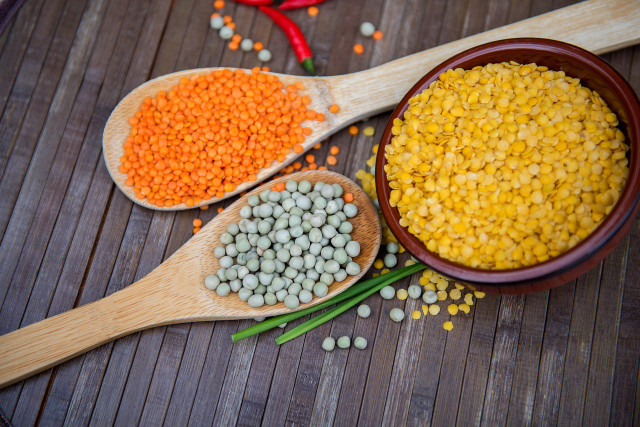


A diet high in carbohydrates has been shown to be able to reduce cortisol and negative mood after stress. A randomized control trial investigating the effects of a whole food diet based on the Dietary Guidelines for Americans also found that healthy carbs from whole food sources reduced cortisol levels. It’s important to note that many unhealthy foods — like sugar, candy, soda, doughnuts and fries — are also carbohydrates. These foods are not foods that reduce cortisol. The umbrella term carbohydrate refers to a wide range of foods. When we talk about carbs in this section — we are only talking about healthy carbs from whole plant sources.
When we eat carbohydrates from healthy whole foods — like wholegrain, fruits and vegetables — we also obtain fiber, vitamins, minerals and other compounds like antioxidants, enzymes and plant chemicals. All of these molecules help to combat the negative effects of cortisol and stress. Organically grown plant-based foods are the foundation of the American MyPlate recommendations because they are associated with improving many functions stress impacts — including:
- Lower body mass index
- Improved blood pressure control
- Improved blood lipid and sugar control
- Improved cholesterol levels
- Reduction in the number of medications needed to treat chronic diseases
- Lower rates of heart disease and mortality rates
Carb-rich foods that reduce cortisol and promote wellbeing
Pulses are an excellent source of healthy carbs (and protein). Whether it is a Cuban black bean soup or a vegan chickpea salad — these are foods that reduce cortisol and improve health. Learn how to cook red lentils, why to save bean water and how to use it for a pulse-boosting, stress-reducing experience.
Pulses are recommended by the American Heart Association and the American Diabetes Association because they are also associated with improved weight management, and possess phytochemicals linked to the following health benefits that help counter-act the effects of stress and cortisol:
- antioxidant and anti-inflammatory properties
- anti-carcinogenic effects
- improved blood sugar
- improved blood pressure
- low glycemic index (which means they do not spike the blood sugar quickly)
Oats provide a healthy source of carbohydrates — as well as protein, fiber, B vitamins and essential minerals like phosphorus and zinc. Oats also possess significant levels of antioxidants and soluble fiber — which has properties that improve blood lipid levels, blood sugar and insulin levels.
Sweet potato is another nutrient-dense source of carbs. The US is the biggest exporter of sweet potato in the world — so finding some homegrown organic varieties shouldn’t be too difficult. The sweet potato will also provide fiber, vitamins A, C and B6, and a range of essential minerals — as well as healthy carbs to reduce cortisol and stress. Try a microwave-baked sweet potato in only 5 minutes!
Healthy Fats
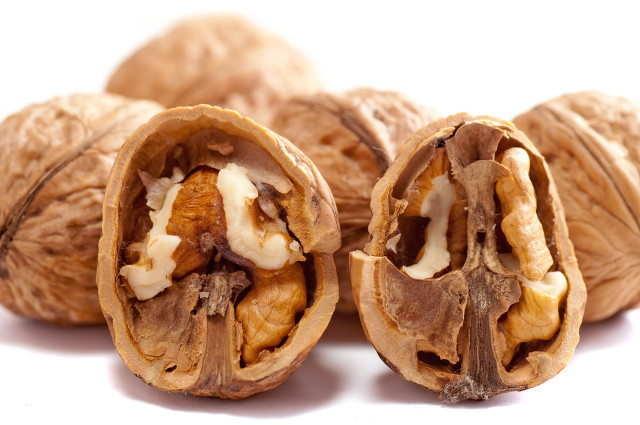


Greater levels of perceived stress are associated with higher fat intake. Several studies have also indicated that high-fat consumption causes systemic inflammation — which is exacerbated by stress. Not all fat is equal though — and some healthy fats have actually shown to help reduce stress and cortisol and boost health outcomes. Foods containing them are foods that reduce cortisol and stress.
Omega 3 and omega 6 fats are essential fatty acids (from the polyunsaturated group of fats) — which means we have to obtain them from food and cannot make them in the body. Omega 3 (ALA) in particular appears to reduce cortisol. Both the Cleveland Clinic the American Institute of Stress acknowledge that polyunsaturated fat intake can diminish stress-induced cardiovascular responses.
Studies show that high intakes of healthy omega 3 fats lower cortisol levels, as well as reducing inflammation, aging and depression risk. The easiest source of omega 3 fatty acids is fatty fish, but you can also get it from some plant sources that are also healthy sources of protein — including:
- chia seeds
- ground linseed
- hemp seeds
- walnuts
- rapeseed oil
Read more: The Ugly Truth About Seafood: 6 Fish You Should Never Eat
Combine foods that reduce cortisol with a lentil and walnut vegan roast or a vegan Georgian bean stew followed by a fruity overnight chia pudding to get your daily dose of healthy macros. You could also add some spelt bread and overnight oats breakfast ideas.
Mineral-Rich Foods
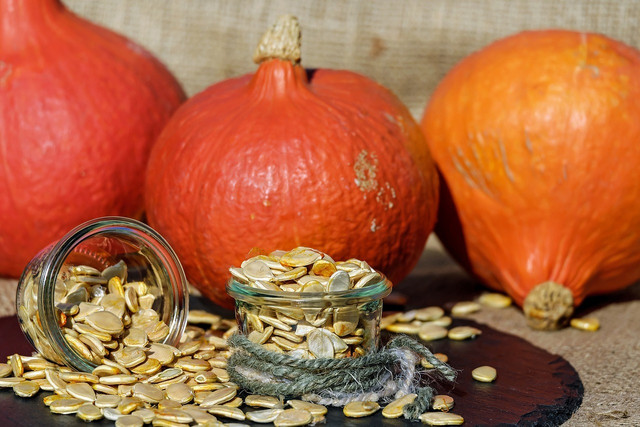


Magnesium is a mineral and micronutrient we need to obtain in food. It plays a critical role in over 300 biochemical reactions in the body. Magnesium is required to maintain homeostasis and has shown to help manage stress and anxiety in several studies. Chronic stress depletes the body of magnesium.
Magnesium has an inhibitory role on the normal stress response and low levels are associated with higher stress. Magnesium also decreases the release of ACTH — the hormone that tells the adrenals to release cortisol. Therefore, foods rich in magnesium are foods that reduce cortisol and help the body return to homeostasis and relaxation.
The recommended dietary allowance for magnesium for adult males is 400-420 mg per day and 310-320 mg per day for adult women. The following are excellent sources:
- Pumpkin seed-kernels: Serving Size 1 oz, 168 mg
- Almonds, dry roasted: Serving Size 1 oz, 80 mg
- Spinach, boiled: Serving Size ½ cup, 78 mg
- Cashews, dry roasted: Serving Size 1 oz, 74 mg
- Pumpkin seeds in shell: Serving Size 1 oz, 74 mg
- Peanuts, oil roasted: Serving Size ¼ cup, 63 mg
- Cereal, shredded wheat: Serving Size 2 large biscuits, 61 mg
- Soymilk, plain or vanilla: Serving Size 1 cup, 61 mg
- Black beans, cooked: Serving Size ½ cup, 60 mg
- Dark chocolate -60-69% cocoa: Serving Size 1 oz, 50 mg
- Peanut butter, smooth: Serving Size 2 tablespoons, 49 mg
- Bread, whole wheat: Serving Size 2 slices, 46 mg
- Avocado, cubed: Serving Size 1 cup, 44 mg
Zinc is another mineral that is important in managing stress. Magnesium and zinc have antidepressant and anti-stress properties — with some studies showing positive effects of zinc on the stress response too. Beans, nuts, and whole grains contain zinc, but it is not absorbed as well from plant-based foods as it is from meat and dairy products. This is because these foods contain phytates — which are a type of antinutrient that affects bioavailability (how micronutrients are absorbed in the gut). Often, cooking and/or soaking gets rid of the antinutrients in your food.
The Vegan Society recommends a varied blend of zinc-rich foods to achieve your recommended daily intake. The society recommends a balanced diet containing many of the foods that also contain magnesium and other beneficial compounds — including:
- beans
- chickpeas
- lentils
- tofu
- walnuts
- cashew nuts
- chia seeds
- ground linseed
- hemp seeds
- pumpkin seeds
- wholemeal bread
- quinoa
Foods That Reduce Cortisol: Vitamin-Rich Foods
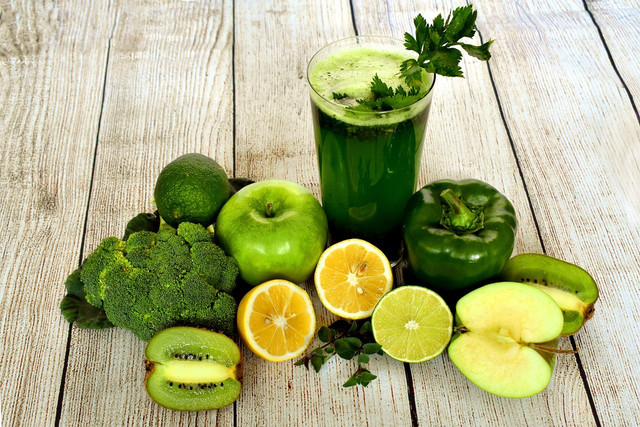


Vitamin B Complex
An in-depth review of the literature found that certain trace elements — particularly lithium, vitamin B6, vitamin B12 and folic acid (B9) — had a positive effect on this system too.
Sources of lithium include: cereals, potatoes, tomatoes, cabbage, and some mineral waters
Sources of B6 vitamins include: fortified cereals, chickpeas, dark leafy greens, bananas, papayas, oranges, and cantaloupe.
Sources of B12 vitamins are primarily from animal products. According to the Vegan Society, the only reliable vegan sources of B12 are foods fortified with B12 — such as some plant milks, some soy products and some breakfast cereals.
Sources of folic acid (folate/B9) include:
- Dark green leafy vegetables (turnip greens, spinach, romaine lettuce, asparagus, Brussels sprouts, broccoli)
- Beans
- Peanuts
- Sunflower seeds
- Fresh fruits, fruit juices
- Whole grains
Try some green juice benefits by making a nutritious smoothie or try some savory cantaloupe recipe ideas to give your body a kick of vitamin B rich foods that reduce cortisol.
Vitamin C
Vitamin C may also have a number of positive effects on mood and stress. Vitamin C is a well-known antioxidant that is involved in anxiety, stress, depression, fatigue and mood state in humans. Psychology Today highlights that many studies have found vitamin C to have a positive influence on stress and how it abolished the secretion of cortisol in animals that had been subjected to repeated stress. Good sources of vitamin C include:
- Citrus fruits
- Tomatoes
- Potatoes
- Raw red and green peppers
- Orange juice
- Grapefruit juice
- Kiwifruit
- Broccoli
- Strawberries
- Brussels sprouts
- Tomato juice
- Cantaloupe
- Cabbage
- Spinach
It’s important to note that B and C vitamins are water-soluble. This means that they can leech from food during processing and cooking — so you might lose a lot of the nutritional content if you over-cook. Consume water and all by making sweet summer fruit soup or check out our 30 best soup recipes for winter.
Gut-Boosting Foods
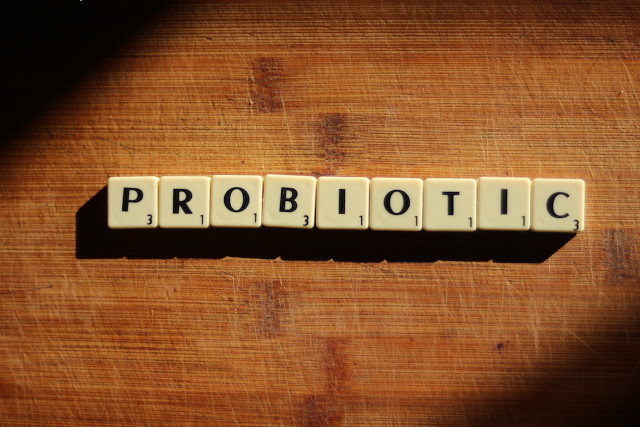


The gut microbiome plays a key role in the stress response and cortisol secretion, while stress has a negative impact on the gut and its functions. The microbes in the gut actually affect many organ systems, including the endocrine system, the immune system, and the nervous system. Recent research theorizes a direct relationship between the microbiome and cortisol in the body. Other studies found that cortisol can impact the gene expression of the ‘bugs’ in your guts and it even appears to play a role in our mental and emotional wellbeing too.
Research into the human microbiome is still in its infancy, but the findings suggest that biodiversity of the gut has a massive impact on our overall wellbeing and may influence the development of many diseases — including cancer, diabetes and other chronic disorders that are exacerbated by cortisol and stress. A healthy microbiome will promote cortisol regulation and homeostasis. Eating probiotic and prebiotic foods will help you achieve a diverse and healthy microbiome that can combat cortisol and its effects. Fermented foods are excellent ways to boost your microbiota and include:
- Miso, miso butter or miso paste
- Kefir
- Kimchi
- Tempeh
- Kombucha and kombucha cocktails
- Sauerkraut and Sauerkraut juice
- Fermented garlic
- Fermented mushrooms
- and any fermented vegetable, really
Feed your probiotics by eating foods that are rich in prebiotics too — like various types of legumes, a vegan asparagus quiche, some vegan baked oats or a vegan chickpea salad.
Foods That Promote GABA Production
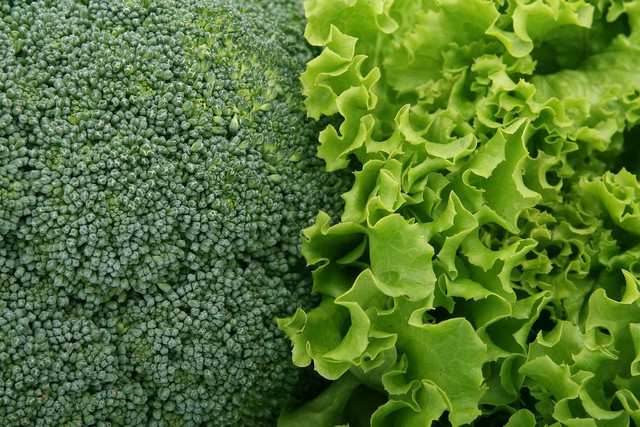


A chemical compound that regulates the control of cortisol in the body is Gamma-aminobutyric acid — better known as GABA. It does this through a very complex process — but in a nutshell — more GABA, less cortisol. Natural sources of GABA-rich and GABA-boosting foods include:
- many fermented foods — such as kimchi, miso and tempeh
- green, black and oolong tea
- brown rice
- soy and adzuki beans
- chestnuts
- mushrooms
- tomatoes
- spinach
- broccoli
- cabbage
- cauliflower
- Brussels sprouts
- sprouted grains
- sweet potatoes.
Boost GABA with Japanese fermented beans in our Natto recipe or try a vegan pate with mushrooms and sunflower seeds. Vegan mushroom risotto, tomato and onion salad, or some vegetarian kimchi might also tickle the taste buds and the GABA in your body.
Other Ways to Reduce Cortisol



There are a huge variety of foods that reduce cortisol and your risks of stress-related and other negative outcomes too. Eating a varied and balanced diet that is rich in plants is key. You could try out some of our superfoods for energy and sustainability to get your daily dose of healthy foods that reduce cortisol or try any of our delicious vegan recipes. The added vitamins, minerals, plant chemicals and antioxidants they contain will help your body stay strong and healthy during stressful periods.
There are also several other natural ways to reduce your cortisol fast — like self-soothing techniques, learning to be a stoic or mindfulness-based stress reduction, for example. Learning how to lower your cortisol in a variety of ways will help you become better at reducing stress in your life. Lower stress and cortisol is also one of the lesser known benefits of walking.
Deep and slow breathing stimulates your vagus nerve — which is the main nerve responsible for calm, balance, and homeostasis — so try simple approaches like the 5-4-3-2-1 method. Conscious breathing can change your outlook. If breath-work isn’t for you — experience some grounding benefits by walking barefoot or enjoy some nature therapy to reduce cortisol and stress instead.
Learn how to beat a bad mood, or check out our article on emotional resilience training to boost your mental health. Sleep has a profound effect on cortisol. So, check out ways to fix your sleep schedule and achieve a better night-time routine. Practicing some yoga poses for better sleep can also help. You can also try natural ways to wind down for the night — like sleep sounds or herbal sleeping aids. Whatever you try — don’t forget to eat foods that reduce cortisol and its negative effects.
Read more:
- Can You Eat Mushroom Stems? Cooking Tips
- Storing Food Correctly: 7 Tricks for Vegetables, Fruits and Leftovers
- How to Cook Bulgur Wheat: Basic Guide and 3 Easy Recipes
- What Is Spelt Flour – and Why Should You Try It?
Important Information regarding Health-related Topics.
** Links to retailers marked with ** or underlined orange are partially partner links: If you buy here, you actively support Utopia.org, because we will receive a small part of the sales proceeds. More info.Do you like this post?






